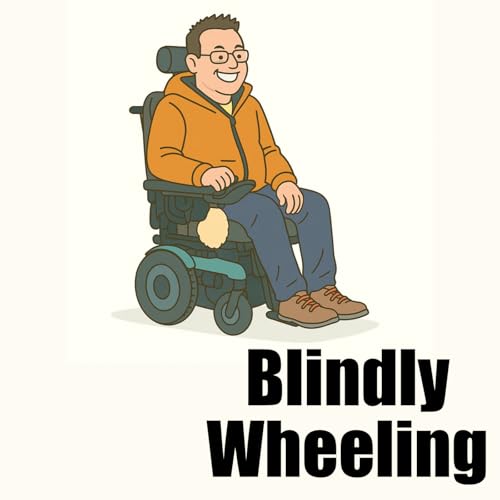
The Blindly Wheeling Podcast
Failed to add items
Add to basket failed.
Add to Wish List failed.
Remove from Wish List failed.
Follow podcast failed
Unfollow podcast failed
-
Narrated by:
-
By:
-
Paul J Ralph
About this listen
The Blindly Wheeling Podcast
Stories, insights and the road to inclusive tourism, one episode at a time.
Hosted by Paul Ralph, a wheelchair using traveller, storyteller and founder of Disabled Access Day, The Blindly Wheeling Podcast brings you tales from his life and adventures, together with excerpts from Paul’s new books. In each episode you will hear passages from Access All Areas – Inclusive Tourism in Practice and from his second volume Access All Events – Accessible Gathering in Practice, and delivered in his unique style.
Every short episode explores a different facet of life as a disabled person and of inclusive travel. Paul shares lived experience, lessons learned and a few laughs along the way. From the joy of finding a genuinely accessible loo to the hidden power of a well‑trained welcome, he guides listeners through the practicalities and possibilities of accessible tourism and beyond.
Whether you work in tourism, hospitality, heritage or events, you are a disabled traveller, an organiser, a curious ally or simply someone who enjoys a good story with a slice of cake on the side, this podcast is for you.
No jargon. No lectures. Just honest chats, thoughtful reflections and plenty of ideas to make the world more welcoming for everyone.
Listen in if you work in tourism, hospitality, heritage or events, if you want to learn how to better include disabled people, if you enjoy personal storytelling with purpose and humour, or if you believe accessibility is everyone’s business.
If you would like to know more about Paul’s books, check out Access All Areas – Inclusive Tourism in Practice and Access All Events – Accessible Gathering in Practice on Amazon.
My journey and adventures
Paul describes himself as:
“I am a consultant, author and public speaker passionate about accessibility and inclusive tourism. My journey has been shaped by my lived experience as a wheelchair user travelling through places that have inspired, challenged and sometimes frustrated me.
I have explored distilleries in the Highlands, navigated historic castles, rolled into bustling city cafés and discovered that some of the most welcoming places are not always the ones you expect.
There have been proud moments such as founding Disabled Access Day and watching it grow into a United Kingdom wide celebration, and the joy of working with Euan’s Guide to help thousands of disabled people find accessible places to visit.
There have also been challenges: doors that did not open, websites that assumed, and conversations that needed nudging in a better direction. In each moment there has been learning and often an unexpected delight, whether it is a brilliant Changing Places toilet in a tiny village or the perfect slice of cake in a tucked away café.
I bring to every conversation a blend of lived insight, practical ideas and a firm belief that inclusion is as much about opportunity as it is about access.
My aim is to inspire, challenge and equip people to create places and experiences that welcome everyone.”
Enjoy!
Copyright 2025 All rights reserved.-
 12 mins
12 minsFailed to add items
Sorry, we are unable to add the item because your shopping cart is already at capacity.Add to basket failed.
Please try again laterAdd to Wish List failed.
Please try again laterRemove from Wish List failed.
Please try again laterFollow podcast failed
Unfollow podcast failed
-
 Nov 4 20258 mins
Nov 4 20258 minsFailed to add items
Sorry, we are unable to add the item because your shopping cart is already at capacity.Add to basket failed.
Please try again laterAdd to Wish List failed.
Please try again laterRemove from Wish List failed.
Please try again laterFollow podcast failed
Unfollow podcast failed
-
 10 mins
10 minsFailed to add items
Sorry, we are unable to add the item because your shopping cart is already at capacity.Add to basket failed.
Please try again laterAdd to Wish List failed.
Please try again laterRemove from Wish List failed.
Please try again laterFollow podcast failed
Unfollow podcast failed


